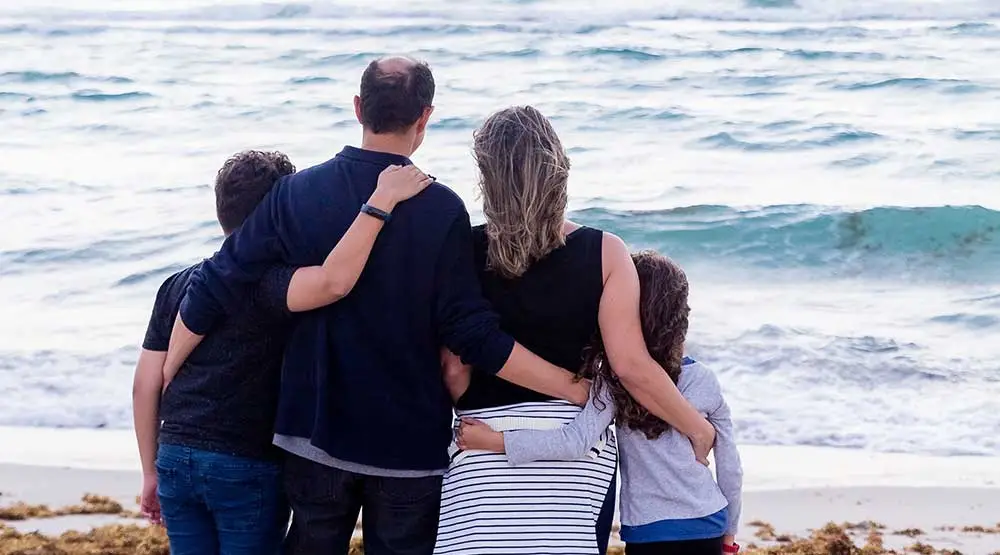
Asset protection trusts are a legal method for a grantor of a trust to put valuable property into trust under the care of an independent trustee while giving the grantor access to the property as a beneficiary. An asset protection trust is a crucial estate planning tool for any person or married couple who owns liquid assets such as cash and brokerage accounts and is vulnerable to liability judgements. APT can protect those assets from creditors and injury lawsuits. Moreover, some APTs can provide income tax savings by putting income bearing assets into a trust in a jurisdiction that does not have an income tax.
For an APT to be protective it must first be irrevocable. Distributions are made only at the discretion of an independent trustee with the oversight of trust protector. Distributions cannot be made to pay off creditors or liability judgments because of spendthrift stipulations written into the trust instructions.
Domestic asset protection trusts can be established in states that allow them.
A major drawback against Domestic APTs is that the trust assets remain in the U.S. and under the jurisdiction of the U.S. courts. This makes those assets vulnerable to court orders, liens, personal injury liability and bankruptcy judgement. Also, since Domestic APTs are a recently emerging technique in estate planning there is limited case law that demonstrates how successful they are as asset protection schemes. On the other hand, there may be limited case law to draw examples from because domestic APTs may be effective enough that they are rarely challenged.
Another type of APT that is virtually bullet-proof to U.S. court judgements or liens of any type is the foreign asset protection trusts, sometimes called an "offshore" trust. These trusts are held in accounts outside the jurisdiction of any U.S. court. Some popular jurisdictions that are friendly to these trusts are the British Virgin Islands and the Cook Islands. Foreign APTs have been the most successful asset protection method and probably more successful than the Domestic APT because the assets are outside the U.S. Asset protection planning not inexpensive. All these techniques are costly to establish. However, doing the cost benefit tradeoff one might determine that the value of the asset they are protecting far exceeds the cost. Also, an asset protection trust might be desirable if you are in at circumstances where you have a high risk of being sued such as small business owners.

In this short segment, I want to leave you with a short primer on what a Revocable Living Trust is. It should raise a lot of other questions that I will try answer in future articles and videos. Some other important other questions include why it is important to have a Revocable Living Trust and what are some details that you should be aware of in drafting a Revocable Living Trust.
Major disclaimer here, this is not legal advice. I am not your attorney. So, I cannot give you legal advice. I’m happy to serve as your attorney if we reach a mutual agreement. Please contact me when you are interested in going forward. Nevertheless, the following is some general knowledge I hope to impart and is not legal advice.
A Revocable Living Trust is a legal entity in which a Grantor can store assets. In simplest terms a Trust is a legal bucket that through its Trustees can own all sorts of property, real property, tangible personal property, ownership shares in corporations, and virtually anything of value.
A Revocable Living Trust must have four components: A grantor, and that is the person who establishes the trust, presumably you; Trustees, these are the person or persons who manage the trust assets, during life that will also be you; beneficiaries, these are the people who benefit from the assets and terms of the trust, once again, during life that is you; and finally a trust must control resources, assets, stuff. In legalese, the term is corpus.
The terms of the Trust determine how and to who the corpus is distributed after your death. In the terms is where the real art of Trust creation rests. Depending on the terms of the Trust, a grantor can protect his assets after he/she is gone. They can ensure their assets remain in Trust for a spouse or child who might otherwise squander the resources or otherwise use them in a way that you would not want them to—think of a child who is still maturing, in a sketchy relationship or maybe is challenged by substance abuse.
Also, the terms allow you to protect your assets from a former spouse or to protect your children of a previous marriage to ensure they receive a benefit from your estate, which they likely will not receive if you die before your new spouse and without an estate plan. And finally, the terms can be made to maximize the estate tax exclusion which is to minimize the actual estate tax that you pay.
Let me leave you with a tickler about the advantage to having your property in Trust instead of owned outright. Further videos will discuss these advantages more, but to leave you with a tease: a Living Trust is private, it rarely has to be aired in a court and by its nature is meant to avoid probate court.
So, if you can make a plan that distributes your assets to your loved ones with the least amount of stress possible, wouldn’t you want to do that? And if you can do that now for a fraction that your family will spend on probate expenses after you die, wouldn’t you want that too? Well, that is what you can achieve by creating a Revocable Living Trust.
If this raises questions that you would like to ask me or you want to schedule and appointment, contact me through my website at paulhiltonlaw.com or call my office at 858-240-6730.
Thanks, and talk to you next time.

In these unprecedented times and with the heightened concern that we must have about our own health, the health of older relatives or the health-of immune compromised loved ones, it is a good time to reflect on why every adult should make basic estate planning considerations.
01
With the onset of the COVID-19 illness, it is altogether likely that someone you know, or even a close family member has been hospitalized and is suffering severely under this virus. Possibly that individual has become so disabled because of the illness that even for a short period he or she has not been able to make medical treatment decisions for themselves. They have become temporarily incapacitated. If you know that person well or that person is a close family member, then you probably know first-hand how difficult it is to help the inflicted in those situations. Often the doctors are unaware of the person’s wishes for end of life care or there is no one for the doctors to turn to get consent for treatment. Further, it may be impossible to get any information about the condition of your loved one. Health care providers are restricted against sharing health information to anyone other than the patient.
02
If the incapacitated person had done appropriate estate planning, then many of those concerns and challenges for arranging healthcare could have been avoided. A good estate plan should include a healthcare power of attorney, often called an advance healthcare directive; that directive legally names a trusted person who can interface with doctors on behalf an a patient and help make difficult healthcare decisions while you or a loved one is incapacitated. The person your loved one authorizes to make health care decisions for her has the same rights as she would “to request, receive, examine, copy, and consent to the disclosure of medical or any other health care information.” California probate code. Moreover, California law deems enforceable and valid healthcare directives lawfully executed in other states.
03
A Living Will is another necessary estate planning document that provides a person’s end-of-life direction to doctors, family members and courts. If you know your loved one would not want to be kept alive through extraordinary means when their death was imminent, but another party is seeking to needlessly prolong their suffering through artificial life-maintaining procedures, you may not have a basis to alleviate your loved ones suffering if they did not make their desires known in a Living Will. This can happen for example when remote family members or estranged siblings and estranged children contest financial distribution planning that is to occur after your loved one’s death. To them prolonging your loved one’s life can seem financially beneficial but cost an estate tremendously and add needless suffering to yourself or your loved one. You and your loved ones can avoid long and expensive court proceedings to determine your wishes by stating those end-of-life plans in a Living Will.
04
A general or limited power of attorney is another necessary estate planning document that names a trustworthy person to help with a person’s non-medical business needs. A power of attorney is general if it authorizes another person to make all the decisions that the jurisdiction’s statutes allow. In California, the power of attorney allows the attorney-in-fact all the powers that a principal with the capacity to contract may carry out through an attorney-in-fact specifically authorized to take the action. California Probate Code . Moreover, an attorney-in-fact named in a lawfully executed power of attorney has a duty to act solely in the interest of the principal and to avoid conflicts of interest. California Probate Code
A power of attorney can be springing or immediately effective. A springing power of attorney only means that the attorney-in-fact does not accrue the power until a specified event happens in the future, such as upon a loved one’s incapacity. An immediate power of attorney means that the power becomes effective to the attorney-in-fact when the principal signs the document.
You and your loved one can get guidance from an estate planning attorney about which type of power of attorney is right for you. In general, the consideration is whether you or loved one could use the help with your daily business needs now or whether you are planning for your future incapacity.
05
If you have minor children, then you will need to provide for their care if you become disabled and unable to care for them. Naming the guardians of your minor children if you become incapacitated by the Corona Virus or any other malady is an essential estate planning step. The guardians you name should be trusted friends or professionals that will take over your power to provide for and arrange for the care of your children when you cannot. These persons are named in an estate planning portfolio. However, if you are not able to afford an entire estate planning portfolio, a standalone document that names guardians for your children when you become incapacitated can be executed by a competent estate planning attorney in relatively short order.
06
Without these documents, often families muddle through with spouses or parents making the tough decisions and healthcare workers not completely sure what the incapacitated person’s wishes really are. At a minimum this creates delay in treatment and may cause financial hardship for the sick loved one and her potential beneficiaries. But many decisions to contract or to make elections for certain treatments are altogether impossible without the medical and general power of attorney.
07
When family members or other interested parties are in dispute about the appropriate care to give a sick loved one or how to use her finances and power to contract, the family and disabled member can end up in probate court convincing a judge that your sick loved one does not have capacity. This is a public forum in the superior court. It is a process where someone petitions the court for the powers of conservatorship over your loved one. Other family members are given an opportunity to object. Then the petitioner must demonstrate by evidence that your loved one is truly incapacitated, and that the person asking for conservatorship is the right person to have those powers over your loved one. This may or may not be the person that your loved one would have chosen to help them during their incapacity.
08
Many people believe that probate court only applies after a person dies. It is true that a probate judge supervises the closing up of a deceased persons estate if the person dies with a will or dies intestate, without a will. However, you or your loved one can end up in probate court even while you’re still alive if you or your loved one become incapacitated. See a knowledgeable estate planning attorney to put in place the appropriate legal documents that name the persons that you and your loved one’s trust to help you when you are incapacitated.
Even during this period of social distancing attorneys are preparing procedures that allow for remote signing of these important documents while still maintaining compliance with the law. And these documents can be prepared singly or as a group depending on what your budget will allow. Act now before you are incapacitated.
You can contact me today.